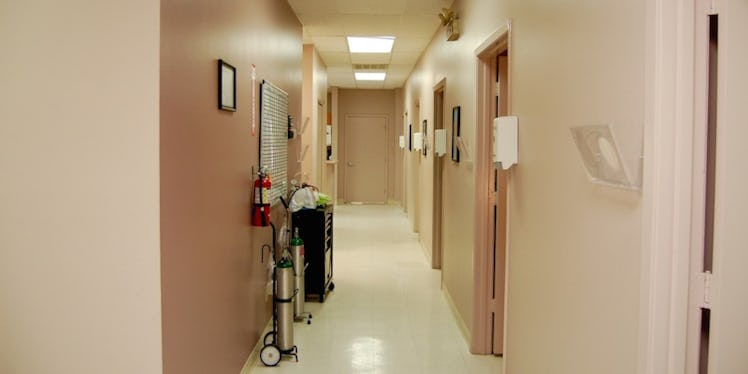
Women Are More Certain They Want Abortions Than Cancer Treatment, Study Finds
Conservative lawmakers keep insisting women need help making their own decisions about abortions. They use this reasoning as the basis for laws that create waiting periods, parental consent and mandated "information" scripts for women seeking abortions.
But a new study has found that women – believe it or not – know what they want when it comes to getting an abortion. The study was led by Lauren J. Ralph at the University of California, San Francisco's Advancing New Standards in Reproductive Health.
She looked at 500 women in Utah seeking abortions, and measured how uncertain they were about their decision to get one.
Women – believe it or not – know what they want when it comes to getting an abortion.
How uncertain were they? Not very. They averaged 15.5 out of 100 on the uncertainty count.
To put that in context, men deciding on treatment after a prostate cancer diagnosis scored 35.7 on the uncertainty count, so they were more than two times more uncertain than women seeking abortions.
Women seeking abortions are slightly less uncertain than women deciding to get a mastectomy after breast cancer diagnosis, who score 17.4 out of 100. Women deciding to use antidepressants while pregnant were even more uncertain, at 26.2.
Men and women deciding whether or not to get reconstructive knee surgery scored between 37.4 and 42.7. So, they were more than doubly uncertain about knee surgery than women getting an abortion.
Interesting.
Ralph told Elite Daily,
We think these findings directly challenge the narrative that abortion decision making is somehow exceptional.
Why, then, do men and women seeking knee surgery not have to do what women seeking abortions have to do in many states?
Many abortion-seeking women have to go into the doctor's office, hear a state-prescribed script riddled with medical inaccuracies, and then wait 24 hours before being able to come back to the doctor's office to get the procedure.
Ralph said,
We hope that our study will call into question the necessity of laws like waiting periods and targeted counseling.
This is far from the first time lawmakers stray from reality when it comes to abortion. A law in Ohio made women use outdated practices under the guise of protecting women. Research found that this law hurt women.
The Supreme Court ruled against Texas lawmakers this summer in Whole Woman's Health v. Hellerstedt. The law was enacted under the guise of helping women.
It did not help women.
This is far from the first time lawmakers stray from reality when it comes to abortion.
Justice Ruth Bader Ginsburg made it clear in her decision that the court ruled against the Texas laws because they were not medically necessary.
Thanks to the Supreme Court decision, many pro-choice advocates hope lawmakers will have to follow actual science and reality in their laws about abortion.
Studies like this could sway what laws are seen as necessary and legal.
Citations: American Journal of Nursing